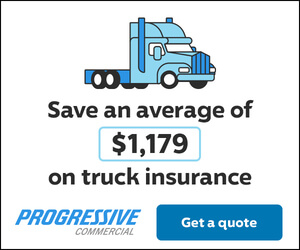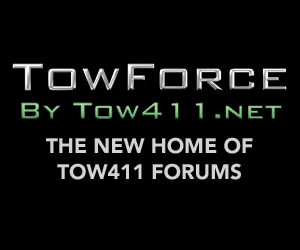Diesel engines and amber lights have long characterized our industry. However, if you are a tow company owner looking to thrive in 2026 and beyond, you must accept a fundamental truth. We are no longer just in the business of towing and recovery. We are in the business of compliance, technology, and customer experience.
The towing landscape is more complex and scrutinized than ever before. Success is now measured not just by response time, but by reputation, transparency, and strategic adaptation. The “wild west” era of towing is gone. The path to professional growth requires us to anticipate the challenges and embrace a future where ethical operations are not simply good practice, they are the only path to long-term profitability.
The primary challenge defining 2026 is the rising tide of local and state regulatory scrutiny. Fueling this is a widespread national conversation around “predatory towing,” leading to legislation that demands greater accountability.
As owners, we face new rules that frequently impose fee caps, require transparent pricing structures, and mandate predictable vehicle release hours, often including nights, weekends, and holidays. For some, these regulations feel like a direct assault on profitability. The professional owner, however, views compliance not as a burden, but as a path to better business and an ironclad reputation. Every proactive step we take to surpass the bare minimum legal requirement is an investment that insulates us from fines, lawsuits, and the devastating impact of negative public perception. Embracing strict internal standards for invoicing and communication is the first, non-negotiable step toward future proofing your operation.
In today’s fast-paced environment, the most efficient tow companies will win. This demands a stack of modern technology. GPS and telematics are no longer luxuries; they are essential for optimized routing, providing immediate and accurate ETAs to customers, and enabling you to monitor driver performance and efficiency in real-time. Crucially, a robust digital dispatch system or a customer-facing mobile app is necessary to meet the consumer demand for instant, real-time updates. If a customer must call for a status update, you are already behind. Streamlining this communication workflow between dispatch, driver, and customer elevates your service from a transactional necessity to a professional partnership.
The shift toward Electric Vehicles (EVs) and vehicles equipped with Advanced Driver-Assistance Systems (ADAS) represents a major operational challenge—but a powerful opportunity. These vehicles cannot be towed or recovered using yesterday’s methods. EVs require specialized equipment to protect high-voltage battery packs, and improper towing can brick the entire vehicle. ADAS-equipped cars are full of delicate sensors and cameras that can be thrown out of calibration, leading to costly repairs.
The owner who invests in specialized training (like WreckMaster, ERSCA or TRAA certifications for EV/ADAS towing) and acquires certified, purpose-built equipment is positioned to specialize and charge a premium. This high-skill, low-risk segment of the market, towing a Tesla or a modern heavy-duty truck, offers significantly higher margins and fewer regulatory headaches than standard roadside calls. Futureproofing your fleet means investing in training now to dominate this segment later.
The perennial industry issue of the driver shortage continues to plague us. The simple solution of offering slightly higher wages is often unsustainable. Sustainable talent retention requires a comprehensive approach built on professionalism. Provide your driver development and well-maintained equipment, invest in their professional development, and foster a culture of safety and respect. When drivers feel valued, equipped, and respected by management, you reduce turnover, which is one of the single greatest operational costs a tow company faces.
We must acknowledge that the towing industry carries a negative reputation in many public sectors. For the owner, customer service is the ultimate differentiator. This starts with radical transparency. Clear, detailed invoicing, prominently posted rates, and thoroughly explaining potential charges before the tow begins will disarm skeptical customers and eliminate disputes over “surprise fees.” A professional interaction ensures that a customer’s worst day (a breakdown) does not turn into an adversarial encounter with your business.
Relying heavily on low-margin motor club calls is a recipe for financial instability. The smart owner strategically diversifies revenue through high-value contracts:
- Heavy-Duty and Specialized Towing: While demanding significant capital investment, this segment offers the highest margins and is less sensitive to market fluctuations.
- Municipal and Law Enforcement Contracts: Securing these requires impeccable compliance, consistent performance, and building strong, ethical relationships with local authorities.
- Private Property Management (PPM): This is a reliable revenue source, but owners must be vigilant. Ensure all property signage is perfectly compliant with local and state laws. A single violation can compromise the entire contract and reputation.
In the 2026 digital age, your company’s online reviews are your most valuable asset. They are the new word-of-mouth. Owners must be proactive: train drivers and dispatchers to encourage satisfied customers to leave reviews, and have a calm, professional strategy for responding to negative feedback. A graceful response to a one-star review, offering a clear path to service recovery, often speaks louder about your company’s character than a dozen five-star ratings.
The future belongs to the towing companies that embrace the professionalization of the industry. Success in 2026 and beyond is no longer about having the biggest truck; it is about having the smartest strategy.
This requires an investment mindset—calculated spending on certified training, advanced telematics, and specialized equipment for new-age vehicles. By prioritizing transparency, strategic specialization, and ethical business practices, tow company owners can not only weather the regulatory changes but also elevate their businesses into respected, high-margin, and essential service partners for the modern road. We have an opportunity to lead this industry out of its historical shadow. Let’s take it!









